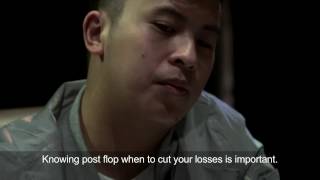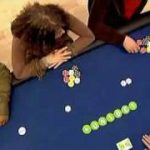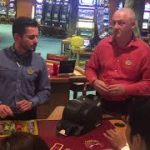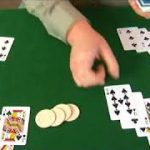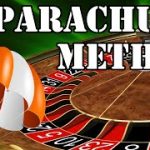Texas Holdem Strategy Video Source & Information:
https://www.paulphuapoker.com/
https://www.youtube.com/channel/UCWCUuzDPZKeTgjxeq7RDuOQ
Post flop strategy
So you’ve learned how to negotiate the pre-flop action. You’ve learned that Pre Flop Strategy is often underestimated by beginners and where a lot of hands are won or lost. As a beginner poker player you have learned not to overestimate high cards with different suits, and not to try to keep too many people in the game if you have good cards. What about after the flop? What should be your Post Flop Strategy? What are the ways you can maximise your best poker hands so you win the pots they deserve?
Phua Phua’s Post Flop tip 1: don’t hold onto average hands for too long
One of the mistakes beginners to Texas Holdem Poker make too often, says Paul Phua, is trying to stay involved in a hand for too long if you have pretty average cards – not the best but not the worst. You pay a few chips here, a few chips there to stay in, waiting, hoping for the turn or the river that will turn your average hand into a good one. The trouble is, over the course of a whole game, those few chips here and there will build up into giving away a lot of money, often chasing a lost cause. Knowing when to cut your losses is a vital skill, or instinct, to learn when you are starting out playing Texas Holdem Poker.
Phua Phua’s Post Flop tip 2: be ready to bluff, but keep evaluating after the flop in Texas Holdem hands
Sometimes you will inevitably stay in a hand waiting for a flush, or three of a kind. And you may get it. You may not have the best hand in the game, but you may also not have the worst. It’s a common situation to be in. If as a poker player you do try to stay in the action until the turn and the river with hands that aren’t so great, then you’ll have to be a great bluffer in order to stand a chance of walking off with the pot. To learn more about bluffing watch Paul Phua’s video about the subject (https://www.youtube.com/watch?v=x9ukeTuQO0o&t=23s) However, after the community cards have been placed on the table by the dealer, the vital thing is to always be assessing the situation, and basing your decisions on whether to bluff on those assessments. You have to be in a state of constant assessment. When new information comes up, you need to be prepared to make new decisions in how you play your hand. You need to ask things like, how many players are still in the hand? Are they the sorts of players who bluff? Are they players who stay in hands if they don’t have great cards? Those questions and lots of others. Those constant evaluations mean you can judge the right moment to stop bluffing and to cut your losses. What is the risk and return for staying in the hand? This video has more.
Post Flop Strategy
One mistake amateur players often make is they hold onto an average hand for too long after the flop.
For example, if they hit top pair, an amateur player might hold onto the hand too long, when they should fold if they are raised by an opponent. What you should be doing is to keep evaluating, and be willing to fold when you are beat when you don’t have a big hand. This is one of the major mistakes of amateur players. They lose too much money and risk too much money in that hand, whereas a good player might cut their losses and lose maybe half of what the amateur player would lose in the same hand in the same situation. Knowing post flop when to cut your losses is important.
Also it’s important know when to bluff, and when to stop bluffing. For example if you have a straight and a flush draw, you might want to see the turn. And you might want to bet also to see the river if you don’t get the cards on the turn. But if your opponent calls you again, you need to think, what is the likelihood he will call me again on the river if I bluff? You need to keep evaluating. You need to know when to stop bluffing and give up the hand. Especially if there are lots of draws available, Ace King Queen, with two in the same suit for example.
No one always makes the perfect decision. And don’t be too afraid to be wrong. But if you do make a mistake, try to learn from it.
Source: YouTube
